
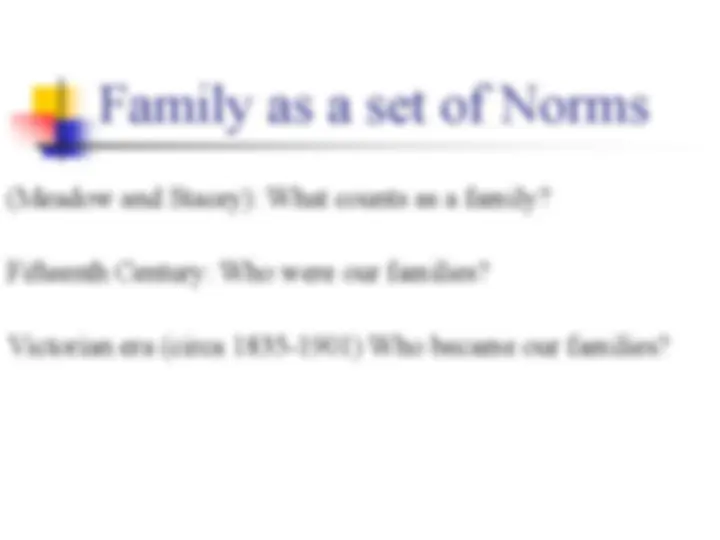
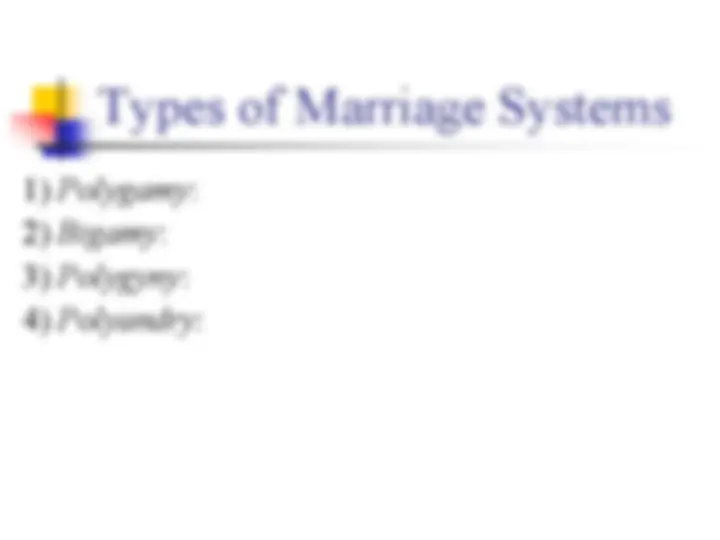
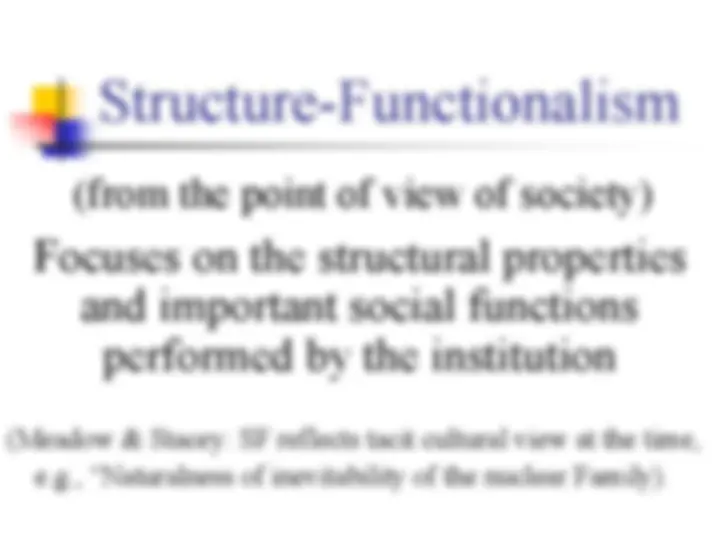
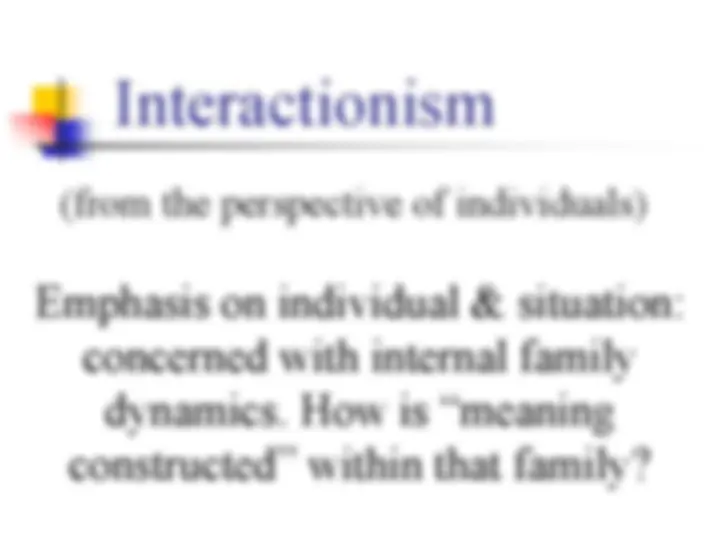
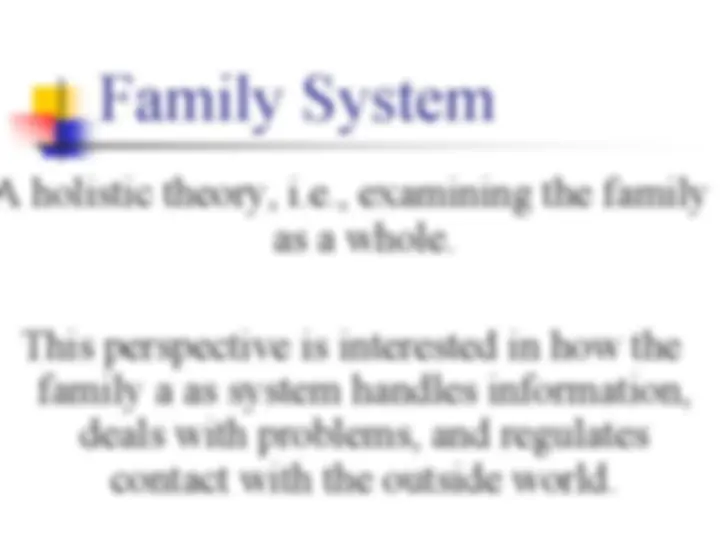
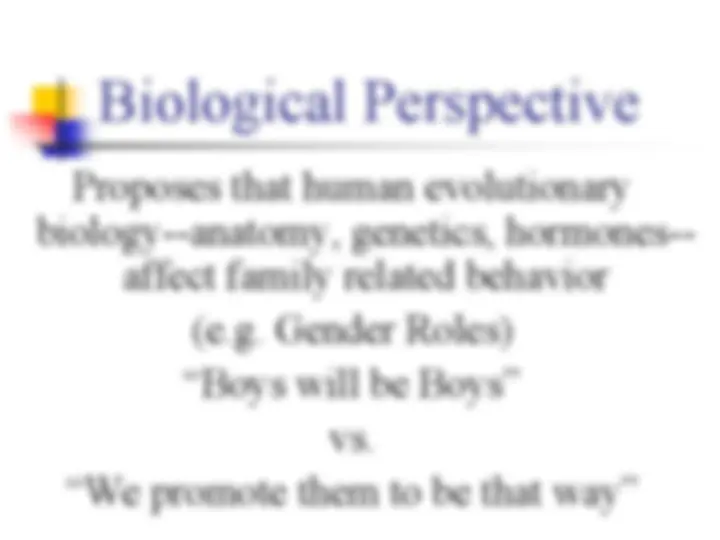
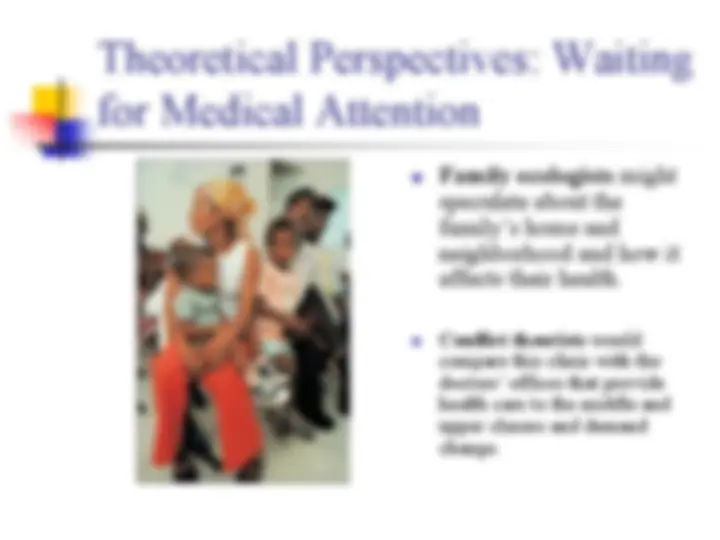
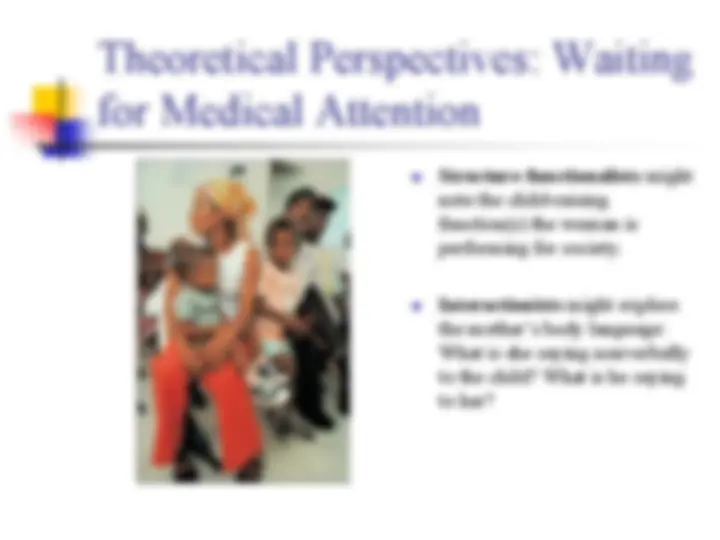
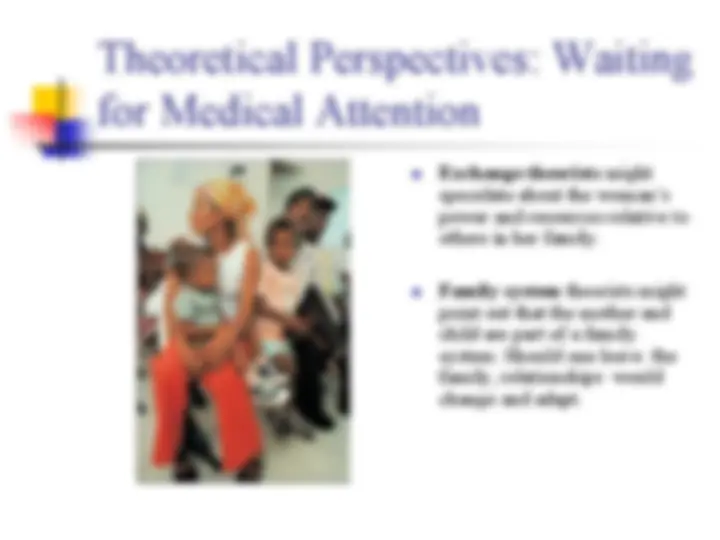


Study with the several resources on Docsity

Earn points by helping other students or get them with a premium plan


Prepare for your exams
Study with the several resources on Docsity

Earn points to download
Earn points by helping other students or get them with a premium plan
Community
Ask the community for help and clear up your study doubts
Discover the best universities in your country according to Docsity users
Free resources
Download our free guides on studying techniques, anxiety management strategies, and thesis advice from Docsity tutors
Family Theories: Types of marriage systems, structure functionalism, conflict perspectives, family system and feminist perspectives.
Typology: Slides
1 / 17

This page cannot be seen from the preview
Don't miss anything!










Types of Marriage Systems
Polygamy :
Bigamy :
Polygyny :
Polyandry :
(from the point of view of society)
Focuses on the structural properties
and important social functions
performed by the institution
Exchange Theory
Focuses on issues of cost, reward,
available resources, and equity in
interaction. Basic premise: individuals
use their different individual resources
to bargain and secure advantage in
relationships
Interactionism
(from the perspective of individuals)
Emphasis on individual & situation:
concerned with internal family
dynamics. How is “meaning
constructed” within that family?
Proposes that human evolutionary
biology--anatomy, genetics, hormones--
affect family related behavior
(e.g. Gender Roles)
“Boys will be Boys”
vs.
“We promote them to be that way”
(Comes out of the conflict perspective)
women
for the other members
Wife abuse; Domestic Violence; Marriage Rape; etc.
Theoretical Perspectives: Waiting
for Medical Attention
Conflict theorists would compare this clinic with the doctors’ offices that provide health care to the middle and upper classes and demand change.
Theoretical Perspectives: Waiting
for Medical Attention
Structure functionalists might note the child-raising function(s) the woman is performing for society.
Interactionists might explore the mother’s body language: What is she saying nonverbally to the child? What is he saying to her?
Theoretical Perspectives: Waiting
for Medical Attention
Feminist theorists might point out that typically mothers, are responsible for their children’s health and ask why.
The answer from a biosocial perspective would be that women have evolved a stronger nurturing capacity.
Family: Definitions
Book’s Definition:
Any sexually expressive or parent-child or other kin
relationship in which--usually related by ancestry, marriage, or adoption--(1) form an economic unit and care for any young, (2) consider their identity to be significantly attached to the group , and (3) commit to maintaining that group over time.
Pp. 9
What’s your definition?